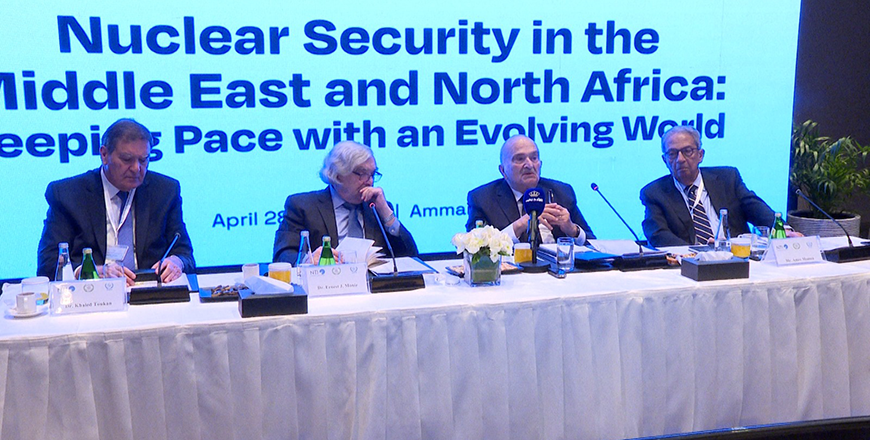AMMAN — HRH Prince El Hassan, Chairman of the Higher Council for Science and Technology (HCST), on Monday inaugurated a regional workshop on nuclear security for the Middle East and North Africa (MENA), organised by the Jordan Atomic Energy Commission (JAEC) in cooperation with the US Nuclear Threat Initiative (NTI) and the International Atomic Energy Agency (IAEA).
Addressing the gathering, Prince Hassan emphasised that true security must be grounded in human dignity and sustainable development, particularly in regions along the 35th meridian east, where countries are grappling with wars, political instability and economic crises.
He also stressed that the protection of life and human dignity should not be secondary concerns but fundamental pillars of any enduring security framework.
The Prince called for human-centred policies that focus on stability, objectivity, and sustainability, urging collective action to bridge divides. He also underscored the importance of building trust through meaningful dialogue and cooperation, rather than conflict and division.
"Nuclear security is the most critical issue of our time," he said, highlighting the need for cross-border cooperation to reinforce both international and regional nuclear security.
IAEA Director General Rafael Grossi emphasised that nuclear security transcends national borders and is crucial for peacebuilding, development, and the peaceful use of nuclear technology in fields such as health, food security, energy and climate change mitigation. "Regional cooperation, such as this workshop, is vital to addressing the nuclear challenges we face," he added.
NTI Co-Chair and former US secretary of energy Ernest Moniz stressed the importance of regional leadership, warning of rapidly evolving risks that necessitate urgent collective action. He called for MENA countries to follow international best practices in managing nuclear facilities, integrating artificial intelligence (AI) and adapting to the shifting dynamics of international geopolitics.
Former Arab League secretary general Amr Moussa also called for regional and international cooperation to tackle nuclear challenges. He proposed the establishment of a nuclear-weapon-free zone in the MENA region, emphasising the need for security and stability in the face of ongoing regional and international conflicts.
JAEC Chairman Khaled Toukan highlighted the urgency of addressing nuclear security in the context of rapid geopolitical transformations and emerging technologies, including cybersecurity threats and AI. He called for a collective, transparent approach to nuclear security and the expansion of peaceful nuclear energy applications.
The three-day workshop, which brought together security and energy leaders from over 12 MENA countries, serves as a platform for dialogue, partnership-building and commitment to nuclear security across the region. It is also expected to foster long-term cooperation and ensure sustainable development in the nuclear energy sector.
